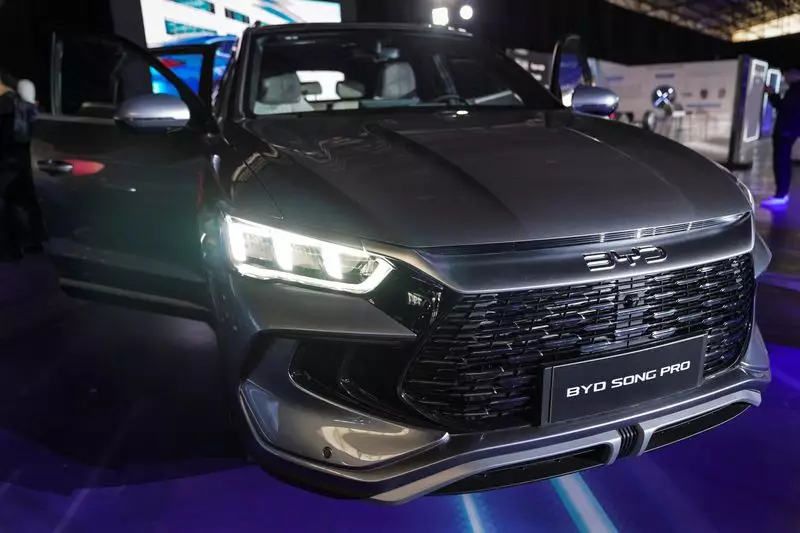Chinese electric vehicle maker BYD is currently in the process of selecting a location for its manufacturing plant in Mexico. The company has narrowed down its list of finalists to three states and is carefully reviewing the proposed incentives offered by each state. These incentives include fiscal benefits, land access, management incentives, and preferential pricing. However, it is not just about the physical space for the plant, but also about the logistics, development, and infrastructure required for an automotive plant.
The Mexican federal government has been under pressure from the U.S. to keep Chinese automakers at arm’s length, which has resulted in the refusal to provide incentives such as low-cost public land or tax cuts for EV production. Despite this, BYD is still considering various offers from the candidate states. Mexico’s northern Nuevo Leon state, known for its automotive hub, and the central Puebla state, home to production by Volkswagen and BMW, are among the contenders. The location of the plant will be central in the country, making it accessible to different regions.
BYD has ambitious plans for its Mexico plant, with the aim of producing 150,000 units in its first stage and increasing to 400,000-500,000 units in a few years. The plant will primarily serve the Mexican market, with no immediate plans to enter the U.S. market. It remains unclear which specific models will be produced at the Mexico plant, as BYD is still evaluating its options.
BYD executives are eager to engage with the incoming Mexican government to discuss their plans for the plant. They aim to present their manufacturing and marketing strategy, as well as showcase the potential impact of BYD’s presence on a national level. This engagement will be crucial in solidifying the company’s position in Mexico and establishing strong partnerships with the government and local authorities.
BYD’s plug-in Song Pro SUV, priced competitively at 599,880 pesos, is a testament to the company’s commitment to bridging the transition from traditional gas-powered vehicles to fully battery-powered EVs. Chinese automakers have been leading the way in this transition, outpacing their Western counterparts in terms of innovation and market positioning. BYD’s focus on affordable yet high-quality electric vehicles positions them as a key player in the evolving automotive industry.
The future of electric vehicle manufacturing in Mexico looks promising with BYD’s investment and commitment to sustainability. The selection of the plant location, engagement with government authorities, and focus on innovation will be crucial in shaping the success of BYD’s operations in Mexico. As the automotive industry continues to evolve towards electric vehicles, companies like BYD are at the forefront of driving this transformation and shaping the future of transportation.

